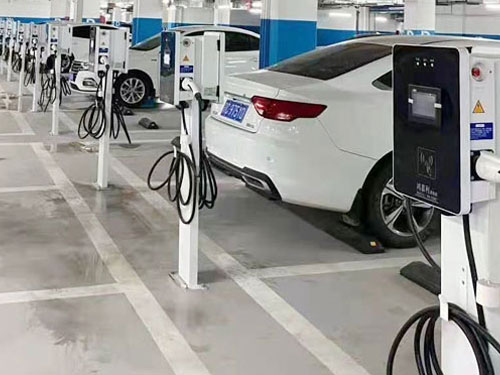-
 +86 18924678741
+86 18924678741 -
 sales@hjlcharger.com
sales@hjlcharger.com -
 Shenzhen City, Guangdong Province, China
Shenzhen City, Guangdong Province, China
The best way to charge an electric vehicle depends on a variety of factors, including personal needs, usage scenarios, charging time, cost considerations, and safety. The following is a comprehensive analysis of several common charging methods:
I. Home Charging
1. Slow Charging (Conventional Charging)
Advantages: Economical, safe, and suitable for daily home use. Slow charging usually uses a household power supply (220V) and a portable charger carried with the car. The charging current is small, generally around 6A32A, and the charging time takes 58 hours. Slow charging can deeply charge the battery and help extend the battery life.
Disadvantages: The charging time is long and it is not suitable for situations where the car is urgently needed.
Applicable scenarios: Fixed places such as home garages and parking spaces are suitable for daily charging and nighttime charging.

II. Public Charging Stations
1. Fast Charging (Ground Charging)
Advantages: High charging efficiency and short charging time. The battery can be charged to about 80% in a short time, which is suitable for situations where the car is urgently needed or long-distance travel.
Disadvantages: The charging cost is relatively high, and fast charging may cause certain pressure on the battery, which is not suitable for frequent use. In addition, the coverage and convenience of public charging stations may vary from region to region.
Applicable scenarios: public places such as highway service areas, shopping malls, hotels, etc., suitable for long-distance travel or temporary charging.

2. Slow charging (AC charging)
Similar to the slow charging method of home charging, but usually used for public charging piles, the charging speed and cost are between fast charging and home charging.

3. Battery swapping
Advantages: The battery swapping speed is fast and can be completed in a few minutes, which is suitable for situations where the car is urgently needed. At the same time, battery swapping can reduce the loss and aging of the battery.
Disadvantages: It is necessary to build a special battery swapping station, which is costly, and the coverage and convenience of the battery swapping station may be limited.
Applicable scenarios: operating vehicles such as taxis and online car-hailing vehicles, as well as public transportation in specific areas.
Comprehensive consideration
The best charging method: For most home users, home charging (slow charging) is the best choice. It is economical, safe and convenient, suitable for daily use and nighttime charging. At the same time, if conditions permit, installing a home charging pile is also a good choice, which can achieve 24-hour self-service charging and save the cost of manual duty.
However, in the case of long-distance travel or urgent use of the car, public charging piles (especially fast charging piles) are an indispensable supplementary option. They can provide fast power replenishment to meet emergency needs.
In addition, as technology develops and infrastructure improves, new charging methods such as battery swapping may be more widely used in the future. But for now, these methods still face many challenges and limitations.
If you want to know more about "best way to charge ev car", you can consult us online or email (sales@hjlcharger.com).
TheDragonBoatFestivalin2023isa
2025 POWER2DRIVE EUROPEPART OF THE SMARTER E EUROP...
Meet us at Electric Vehicle Asia 2024 in Thailand!...
"Three Electricity" system - t
Find Hongjiali New Energy Co.,
Thailand Electric Vehicle Char
Regarding the charging time of
WhohasthemostEVfastchargingsta
With the popularization of ele
Ultra-fast ev charging, also known as hi
20kw portable ev charger is an efficient
Solar ev charging stations, also known a
Operate your electric fleet with confide
Whenever you need us, we're here for you. --- Contact us for all your support needs, from technology, general queries to information support, etc. Our hotline numbers and e-mail are open 24hx7d for your needs.

 +86 18924678741
+86 18924678741 sales@hjlcharger.com
sales@hjlcharger.com Shenzhen City, Guangdong Province, China
Shenzhen City, Guangdong Province, China